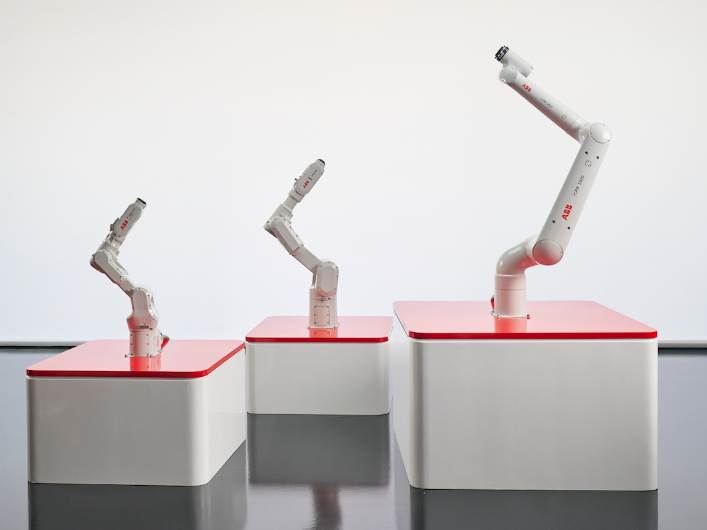As the largest robotics market globally, China accounted for more than half of all robot installations in 2023, highlighting the critical role of robotics in the future of manufacturing.
ABB has introduced three new robot families designed to enhance automation in China’s rapidly growing manufacturing sector. This expansion comes as part of ABB's strategy to address the increasing demand for robotics in high-growth segments, particularly in electronics and consumer industries.
Manufactured at ABB’s state-of-the-art Shanghai Mega Factory, the new families—Lite+, IRB 1200, and PoWa—are tailored to meet diverse automation needs, ranging from essential material handling to high-end applications like dispensing and polishing. Each is powered by ABB's OmniCore controller platform, facilitating seamless integration with AI, sensor technologies, and cloud and edge computing systems.
“China is the world’s largest robotics market... We are responding to the increasing demand for accessible, user-friendly solutions,” said Sami Atiya, president of ABB’s Robotics & Discrete Automation Business Area.
The mid-market robotics segment in China has experienced impressive growth, with a 24% compound annual growth rate (CAGR) from 2021 to 2024, and an expected 8% annual growth through 2028.
Overview of the new robot families
- Lite+: Designed for essential material handling and pick-and-place operations, the Lite+ robot is compact and user-friendly, lowering barriers to automation for smaller operators. Its integration with the new IRB 1200 and other IRB robots provides flexible production solutions for industries like electronics manufacturing.
- PoWa: A collaborative robot (cobot) built for speed and efficiency, PoWa operates at industrial-level speeds of up to 5.8 m/s. Its no-code programming and plug-and-play capabilities allow it to be operational within 60 minutes of unboxing, making it particularly appealing to small and medium enterprises.
- IRB 1200 (New Generation): This redesigned robot is optimised for high-speed, high-precision tasks such as assembly and polishing. It is approximately 20% lighter and more compact than its predecessor, enabling manufacturers to create space-efficient production cells while boosting operational efficiency.
The launch also included an AI-driven natural language software tool for teaching robots, exemplified by the PoWa cobot. This innovative tool simplifies the teaching process into three steps: ‘see, speak, do,’ allowing the robot to perceive its environment, process verbal instructions, and execute precise actions.
With over 90% of ABB robots for Chinese customers manufactured locally, this initiative underscores ABB’s commitment to supporting China’s advanced manufacturing transformation.



